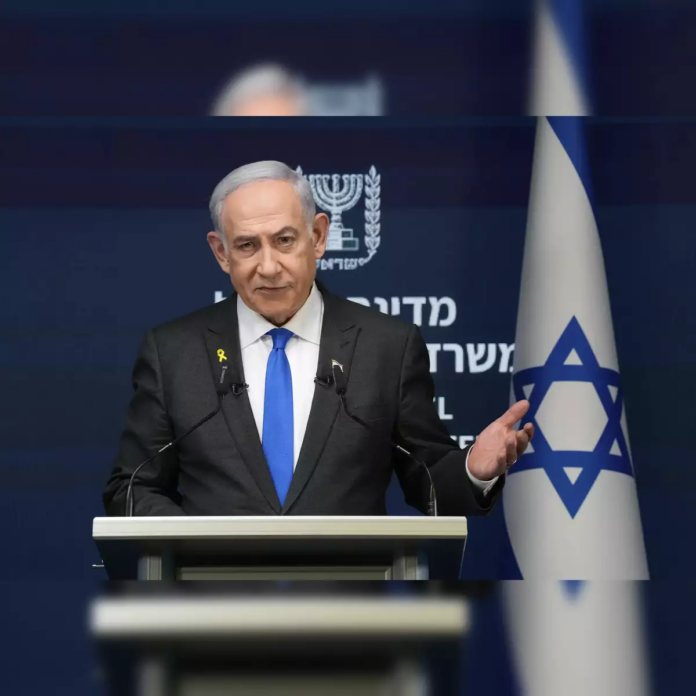Israel’s recent airstrikes on Iranian military facilities have ignited intense political discussions within the country, with leaders sharply divided over the approach taken. The operation, conducted in response to Iran’s missile attack on October 1, targeted missile manufacturing facilities, resulting in the deaths of two Iranian soldiers. While some Israeli politicians praise the operation’s precision, others argue it didn’t go far enough in penalizing Iran for its aggression, accusing the government of caving to US pressure.
The Attack on Iran: Precision vs. Aggression
The Israeli strike aimed at crippling specific Iranian military targets without escalating into a full-blown conflict. Prime Minister Benjamin Netanyahu’s decision to avoid hitting Iran’s critical infrastructure, such as nuclear facilities and oil reserves, has drawn mixed reactions. The government framed the restrained approach as a means of maintaining control while asserting Israel’s right to defend itself.
However, the decision has proven controversial, as some Israeli leaders feel this approach undermines Israel’s strength and misses an opportunity to weaken Iran’s capacity significantly.
Opposition Leaders Call for a Stronger Stance
Yair Lapid, Israel’s opposition leader and a former prime ministerial candidate, voiced his dissatisfaction with the limited scope of the attack. In a post on X, he congratulated the Air Force for their precision but argued that more decisive action was needed to deter future aggression from Iran.
“The decision not to attack strategic and economic targets in Iran was wrong. We could and should have exacted a much heavier price from Iran,” Lapid stated. He went on to call Iran “the head of the axis of evil,” emphasizing that the country should face severe consequences for its actions.
Similarly, Tally Gotliv, a member of Netanyahu’s Likud party, criticized the restraint, specifically calling out the failure to target Iran’s nuclear and oil infrastructure. She argued that this approach reflects undue influence from the US, which, according to her, does not prioritize Israel’s long-term security.
“Not striking Iran’s nuclear facilities will be a cause for regret for generations. Not targeting Iran’s oil reserves is a grave mistake,” Gotliv said, accusing the Biden administration of pushing Israel into a more cautious stance than necessary.
Support for Netanyahu’s Measured Approach
Despite the criticisms, several figures within Israel’s political landscape have supported Netanyahu’s calculated strategy. National Security Minister Itamar Ben Gvir, known for his usually hawkish stance, surprisingly backed the restrained approach, calling it a “good beginning.”
“This attack was a good beginning to target Iran’s strategic assets. The next phase should continue in a similar vein, hitting key areas that diminish Iran’s threat capacity,” Ben Gvir said. His support signals an unexpected endorsement from a segment of the political spectrum typically critical of restraint in military matters.
Opposition leader Yair Golan of the Israeli Labor Party also lauded Netanyahu’s choice, describing the operation as a successful maneuver that weakened Iran’s defensive and offensive capacities without dragging Israel into a prolonged conflict. According to Golan, the calculated strike demonstrated strength without provoking a full-scale war, which he praised as a prudent move given the region’s volatility.

The Shadow of US Influence: Did Washington Dictate Israel’s Response?
The restrained approach has sparked debates over the extent of US influence on Israel’s decision-making. Reports emerged suggesting that the Biden administration may have urged Israel to avoid escalating the conflict by hitting strategic targets, a claim that Netanyahu’s office quickly denied.
“Israel chose the targets ahead of time, based on its national interests and not on American directives,” read a statement from Netanyahu’s office, pushing back against allegations of US interference. The denial underscores Israel’s commitment to its independent defense policy, though some critics remain skeptical.
US President Joe Biden has, however, supported Israel’s right to self-defense, calling the strikes a justified response to Iran’s aggression. While Washington’s influence remains a topic of speculation, it is clear that the US-Israel alliance continues to play a crucial role in shaping regional policy, especially with regard to Iran.
The Bigger Picture: Israel-Iran Tensions and the Road Ahead
The Israeli strike on Iran comes at a time of heightened tensions in the Middle East. With Iran’s continued missile development and nuclear aspirations, Israel’s defense strategy is under scrutiny from both allies and domestic critics. As the Israeli government navigates these geopolitical waters, balancing restraint with deterrence remains a delicate act, especially with vocal factions pushing for more aggressive policies.
The attack on Iran serves as a signal of Israel’s capabilities and resolve, but it also raises questions about whether limited responses are sufficient to address the evolving Iranian threat. With Iran’s military infrastructure largely intact and oil reserves untouched, the strike’s long-term impact on Iran’s strategic abilities remains uncertain.
A Nation Divided on Security Strategy
Israel’s recent action against Iran has highlighted deep divisions within its political leadership on how best to handle the Iranian threat. While some, like Lapid and Gotliv, see restraint as a missed opportunity, others believe that measured responses prevent unnecessary escalation.
As Israel contemplates its next steps, one thing is certain—the country’s approach to Iran will continue to be a major topic of debate, both domestically and on the international stage. The balancing act between asserting military power and maintaining diplomatic alliances will be crucial in shaping Israel’s future security policies in a volatile region.

